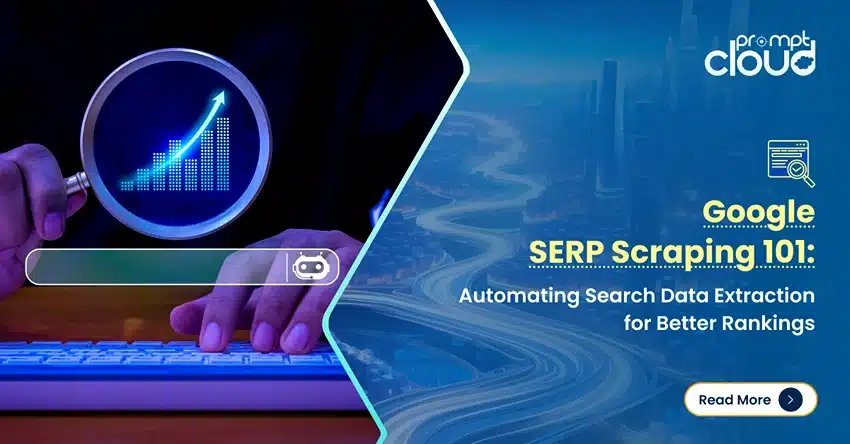
A data collector works on gathering and organizing facts. This information comes from surveys, bases, or physical records. The main purpose is to provide accurate details for others, like analysts or decision-makers. A data collector acts like the foundation of a building. Without solid and reliable information, everything else collapses. Their work controls that decisions are based on facts and not guesses. Here we’ll try to outline the path from desire to a successful career as a data collector.
Step 1. Find out what data collectors do
The job of a data collector has existed for decades but changed with technology. In earlier times, people filled out paper forms or conducted face-to-face interviews. But what is a data collector now? Today, digital tools make everything faster and more accurate.
The data collector job description includes collecting and recording information from various sources. Someone might collect feedback from customers using surveys. Others might assist all kinds of agencies in gathering statistics for a census. This work is vital because wrong info leads to poor decisions. If a company uses outdated statistics to launch a product, it could result in failure. Hospitals and governments depend on correct information to improve their services too.
In their daily work, these professionals visit specific places, ask questions, or update databases. Even a retail company usually hires someone to visit stores and confirm inventory counts. In healthcare, collectors work with patient records to keep them updated and correct.
Step 2. Get the right education
Some roles in data collection accept candidates with a high school diploma. However, additional qualifications often open up more opportunities for growth.
People whose goal is to get a leading role in this field must study a lot. Subjects like data science, computer science, or statistics are a must. These areas give you knowledge about organizing and analyzing information. Check the list of programs that help aspiring data collectors get started:
- University of Illinois Urbana-Champaign. Offers a Bachelor’s degree in Information Sciences. Includes courses on management and analytics.
- Arizona State University. Provides a Bachelor’s program in Data Science, teaching key skills like info visualization and statistical analysis.
- Harvard Extension School. Offers an online Data Science Graduate Certificate that includes courses on mining and machine learning.
- Coursera. Features programs like the IBM Data Science Professional Certificate, which covers Python, visualization, and basic analytics.
- Udemy. Includes beginner-friendly courses like “Data Analysis with Excel,” which is ideal for learning essential tools.
Not every role requires a formal degree, but having specific skills can make a candidate pretty competitive. Employers look for applicants who are proficient in tools like Microsoft Excel or who understand basic coding.
If you can’t get an education, focus on the quality of the resume. A strong CV can matter more to employers than formal education. Hiring managers focus on professional skills, motivation and certifications listed on a CV. They look for evidence of real-world knowledge. Resume writing service craftresumes.com can make a candidate stand out, even if they lack a formal degree. With quality support you can summarize the data and present it in a pleasing way. So don’t let a lack of education stop you.
Selecting the right educational path depends on career goals and the industry of interest. For those starting out, a diploma might be enough. For others, further studies can lead to leading positions.
Step 3. Develop Data Collector Skills
This job demands specific abilities to perform well. Without the proper skills, mistakes can happen, leading to costly problems. For example, incorrect patient records in a hospital could cause wrong treatments.
Soft skills you’ll find in data collector job description:
- Being detail-oriented!
- Precision is important when handling numbers or entering information into a system. Even small errors can lead to bigger issues later.
- Strong organizational habits. A data collector works with large amounts of information, and keeping it structured helps maintain efficient workflow.
- Assiduity. You must know how to do monotonous work for a while.
Technical skills are necessary. Knowledge of tools like Excel, Google Sheets, or database software is required. Basic understanding of statistics is an added advantage as it helps detect patterns and inconsistencies in information.
Practice matters
When you work on practical tasks it builds confidence. It’s the best answer on how to become a collector. Internships or entry-level jobs offer chances to gain hands-on experience in the field. Start just helping with data entry for a project.
Non profit volunteering is another way to develop skills. Organizations need help with research or community surveys. This provides a real introduction to the professional “habitat”. Practical work helps professionals understand the challenges they might face. It prepares them to handle similar tasks in the future.
Step 5. Never Stop Learning
The field of data collection keeps changing as new tools and methods emerge. Staying updated with these changes is important for professionals to remain competitive. Earning certifications is one way to build relevant skills.
- Google Data Analytics Certificate: Focuses on interpreting and presenting information clearly. It includes lessons on tools like Google Sheets and Tableau.
- CompTIA Data+ Certification: Covers methods for analyzing info and presenting it for decision-making in business and IT roles.
- IBM Data Science Professional Certificate (Coursera): Introduces Python programming, info analysis, and machine learning basics. This program works well for beginners.
These certifications include lessons and exams, and they usually take a few weeks to complete. Plenty of programs are available online, making them accessible for people. Add certifications to a resume and demonstrate a commitment to learning.
Step 6. Find out what salary to expect
The pay for a job varies. On average, you can earn between $40,000 and $50,000 per year in the US. Mid-level: from $50,000 to $65,000. Experts gain at least $70,000 a year. Check the table:
| Position | PayScale | Glassdoor | Indeed | Average Annual Salary |
| Data Collector | $44,000 | $45,500 | $42,000 | $43,833 |
| Data Coordinator | $52,000 | $53,180 | $48,589 | $51,256 |
| Data Analyst | $70,000 | $72,000 | $68,000 | $70,000 |
Step 7. Search for a job
You must prepare and have a strategy to find a job. Check online job boards like LinkedIn, Indeed, and Glassdoor. They feature listings for jobs and the details on how to become a collector.
Companies across retail, healthcare, and government, regularly hire for this role. Nielsen hires professionals to gather consumer data for research projects. Government agencies look for people to assist with.
Tips:
- Prepare a strong resume that highlights relevant skills.
- Apply for internships or beginner roles to gain practical knowledge.
- Attend local or online events to connect with professionals.
- Customize applications to match the specific requirements of job postings.
Final Thoughts
The path to becoming a specialist is pretty achievable. This job is on demand in various fields, from business to healthcare. Follow the steps above to build a strong career. The growing reliance on accurate information means there will always be vacancies for skilled data collectors.




















